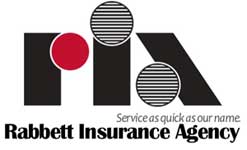Halloween is one of my favorite times of the year. From trick-or-treating to a great holiday bash there is tons of fun to be had by all. But, like any good insurance agent, I’m here to spoil the fun by reminding you that Halloween festivities can also be the cause of accidents and lawsuits. So, here are some tips and advice to avoid potential insurance claims.
Confine your pets. While you may think your dog, or cat, is great with children and completely docile, a 10 year old dressed as Kim Jong-un demanding candy at your door may scare the heck out of your pet and cause him/her to act out of character. When I rescued my dog, Mowgli, he was just a puppy (a high strung, bark-at-every-noise, puppy) for his first Halloween. I had been doing training with him and one of the exercises the dog trainer suggested was to have friends and family come to the door and ring the bell so that he would become used to people coming to the house. I thought it was a great idea to take advantage of the Halloween foot-traffic to help train him. Definitely not a great idea. Mowgli’s shrill barking could probably be heard in Windsor Locks that night. One little Superman jumped so high he almost flew off my porch. The point is, scare children with your spooky decorations, not with your barking dog.
Keep walkways, and your front lawn well-lit and free of any potential hazards. Make sure those spooky decorations are out of the way and cannot be tripped over. If you have a hole in front lawn that you have been meaning to fill, now is the time. You do not want any obstructions preventing those costumed kiddos from getting their loot. And don’t assume they are going to use your walkway. They will take the most direct route to “candyville”, which will most likely be your front lawn. And please, use battery operated lights instead of candles in your jack-o-lanterns. They even make ones that flicker just like a real candle and when the pumpkin walls start to collapse due to chipmunk damage, like ours do, an LED light will not burn your house down, or scorch the costume of a confection-seeking child the way an open flame can.
Hand-out store bought treats. If you’re like me, you’ll want to hand out healthy, homemade granola and Larabars™ to the kids in your neighborhood. However, Halloween is not the time to push your anti-processed-sugar agenda. Unless you’ve got some Products Liability on those Kind Bar™ knockoffs, stick with store bought treats and do not repackage them in anyway. Not only will this avoid you having to clean the eggs off your siding the next day, but will ensure that no one sues you when their little Witch turns green (for real) from food poisoning, or has an allergic reaction to your homemade treats. And, by-the-way, if you have vandalism coverage on your Homeowners policy, the damage from the rotten eggs should be covered.
Do not allow any little Storm Troopers or Darth Vaders to enter your home. The first year my daughter, Elodi, trick-or-treated she was only 7 months old. Needless to say, she does not remember much. Her second Halloween never happened due to our freakish October storm that left us all without power for several days, if not weeks, and instead was spent enjoying the hum of a friend’s generator while we ate random “treats” from our snow-packed cooler before it all spoiled. By her third Halloween, Elodi was more than ready to hit the streets and beg for candy. We explained the rules, i.e. ring the doorbell, shout “trick-or-treat”, get your loot, say “thank you” and move onto the next house. But 3 year olds don’t always follow the “rules” and after she rang the doorbell of the first house and the homeowner opened the door, rather than shouting, “trick-or-treat”, she walked right into the house and proceeded to follow the owner’s kitty into another room. It took a few houses for her to get the hang of things. You’d be surprised how many people will allow a toddler dressed as a unicorn with a baby doll hanging from its neck, by its neck, (her own added costume accessory) into their home. The last thing you want is a child wearing an ill-fitted costume with an obstructed, masked view to running through your house. Hand out those treats on your front porch or stoop. Better yet, if the weather is nice enough, set yourself up outside and avoid having any children walking up and down your front steps at all. When my son, Raiden, was 2 years old, he was much more interested in handing out candy to trick-or-treaters than going from house to house himself. So we set up a few chairs on the front lawn. He was delighted that all these dressed up characters came right to him, and I was a happy insurance agent knowing no caped candy crusader was going to be tumbling down my steps. If a rebel Princess Leia does break through your protection shield and enter your home, your Personal Liability on your Home policy provides your second line of defense.
Limit your driving. With all those sugar hunters on the loose, running from home to home in the dark, you’ll want to be extraordinarily careful if you are behind the wheel. The safest bet is to refrain from driving at all Halloween night. However, with the holiday falling on a Saturday night this year, I’m sure many of you are planning on attending a monstrous bash. If so, avoid being on the road at peak treating hours.
No matter what your plans are this Halloween, you can be safe and still have some fun. As always, if you have any questions on what your insurance policy covers give us a call!




